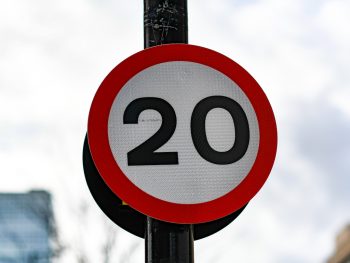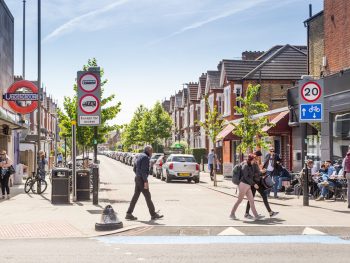Seven in 10 oppose UK-wide 20mph urban speed limit
Seven out of 10 motorists (73%) say that the 20mph speed limit adopted in Wales shouldn’t spread across the rest of the UK.

The research shows little enthusiasm for wider use of 20mph across the UK and scepticism that drivers would stick to the rules
Research from Startline’s November Used Car Tracker shows that 19% think that it is “just too slow” while 15% also say that too few drivers would stick to the new limit.
Paul Burgess, CEO at Startline Motor Finance, said: “It’s fair to say that there is relatively limited enthusiasm for wider use of 20mph across the UK, as well as some scepticism that many drivers would respect the new limit even if it was introduced.
“The move appears to have been quite divisive in Wales and it looks as though it would be similarly controversial if applied in England, Scotland and Northern Ireland. It’s perhaps noteworthy that 4% of people we surveyed admitted that they wouldn’t stick to the limit themselves.”
However, Startline’s research, carried out among 303 consumers and 59 dealers, saw almost one in four respondents (23%) say they believe that reducing the limit to 20mph would save lives – although one in five (20%) say that 30mph roads are “already safe enough.”
Burgess added: “The Welsh government’s argument has been entirely based around safety and that lower speed limits in urban areas are proven to save lives. A sizeable minority of those we questioned definitely agree with that approach.
“It’ll be interesting to see what happens in Wales over the next few years, whether the 20mph limit becomes something that motorists accept as part of everyday driving or if it continues to remain a subject of debate that has some political potency.”
20mph policies ‘are not anti-motorists, they are anti-death’
20mph zones are an increasingly divisive area. The default residential speed limit in Wales was cut to 20mph earlier this year, causing huge controversy. A petition calling for a U-turn received more than 443,000 signatures while Wales’ deputy minister for climate change, Lee Waters, faced a no confidence vote but survived.
Since then, the UK government has said it’s reviewing guidance on 20mph speed limits in England “to prevent their blanket use in areas where it’s not appropriate” – part of its pushback on ‘anti-car measures’ and reinforced in its Plan for Drivers, published ahead of a possible general election next year.

TfL analysis indicates areas with a lower 20mph limit have seen the number of collisions fall 25% and collisions resulting in death or serious injury drop 24%
But there are plans in Scotland to roll out a 20mph limit in built-up areas by 2025. And Transport for London (TfL) continues to introduce 20mph limits on its roads in the capital as it points out that a pedestrian hit at 30mph is five times more likely to die than at 20mph. Analysis by TfL on areas where the speed limit has been reduced indicated that the number of collisions fell 25% and collisions resulting in death or serious injury dropped 24%.
Meanwhile, transport consultancy firm TRL (formerly the Transport Research Laboratory) has said political talk of ending the ‘war on motorists’ should be questioned.
It’s warned that the term ‘war’ is associated with violence, yet it’s directed here at car drivers who are relatively safe in low-speed collisions, rather than the pedestrians and vulnerable road users who are at higher risk of severe injuries.
Shaun Helman, chief scientist at TRL, has said it’s time to shift the focus from a 20mph limit being a ‘war on the motorist’ to a 30mph limit being a ‘war on the pedestrian’ regarding injury severity.
And Road Angel has said it’s important that drivers understand the 20mph policies “are not anti-motorists, they are anti-death”.
Gary Digva, founder of the dashcam and speed camera detector firm, said: “Lowering the speed limit in areas where there are a lot of vulnerable road users, such as cyclists and pedestrians, makes sense as it reduces the risk of fatalities should there be a collision.
“Not only does lowering the speed limit reduce the force and impact of a vehicle, but it also dictates if a driver is able to stop in time to avoid a crash.”












